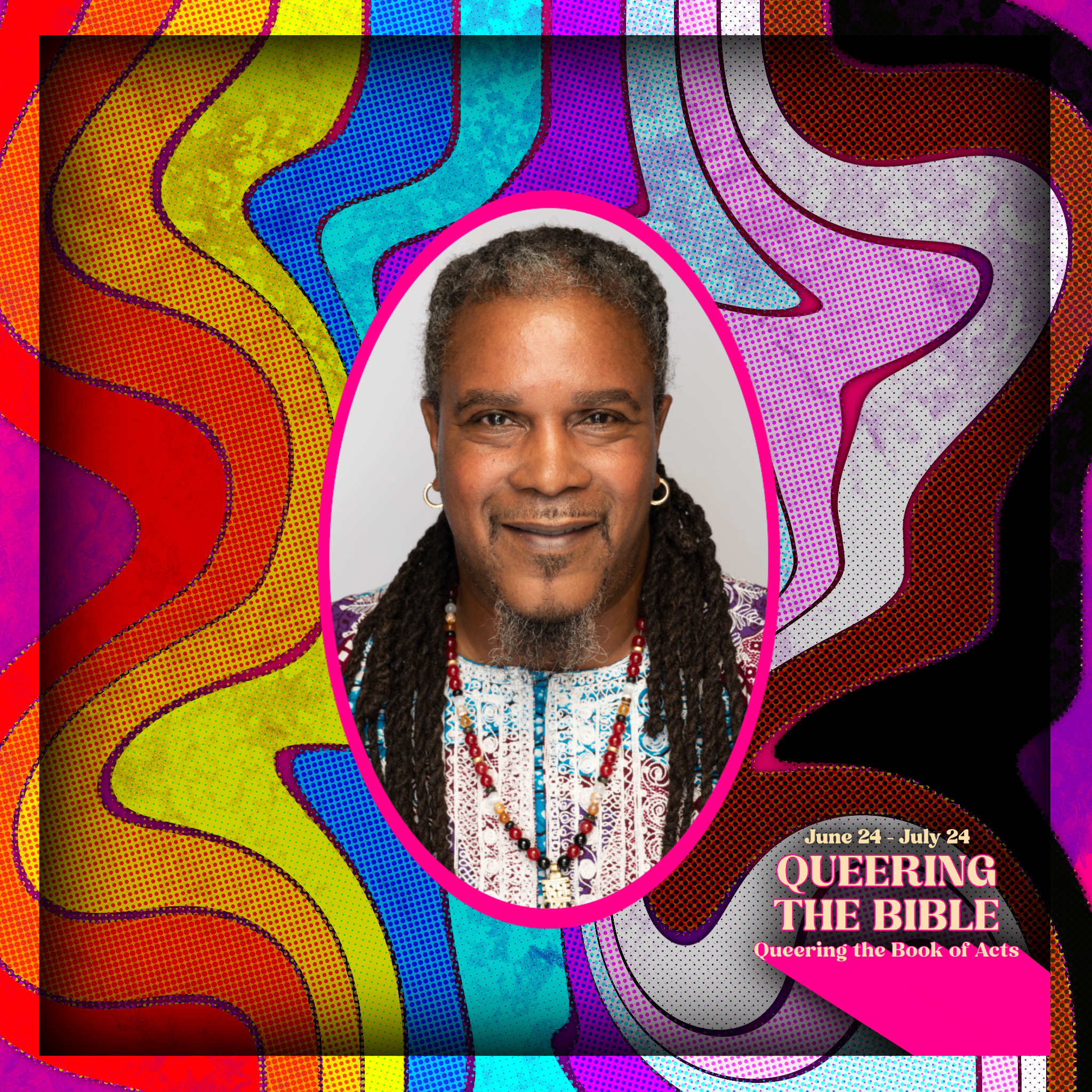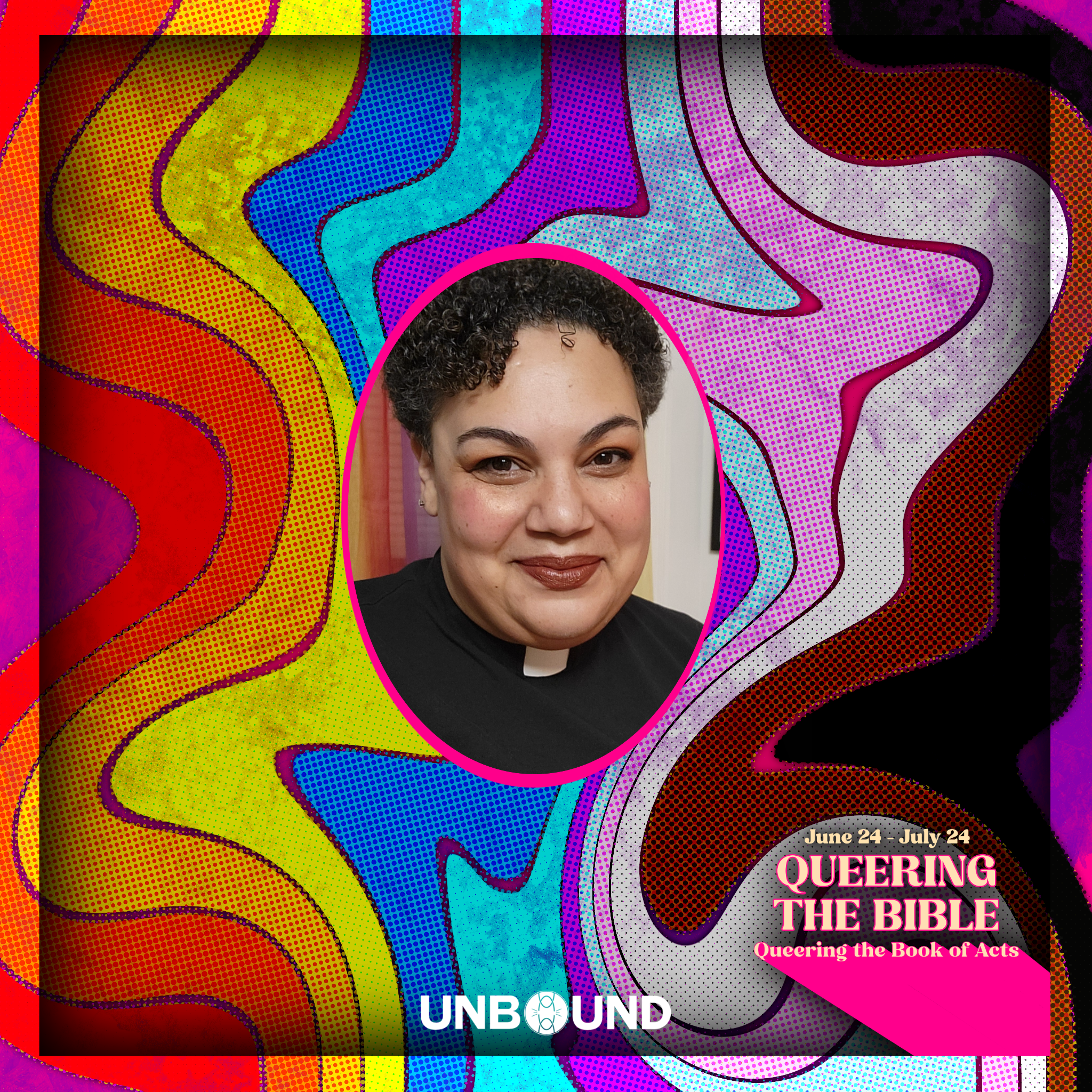Queering Acts 2
Pentecost sounds like a pride parade. Both events are characterized by vibrant expressions, a sense of community, and transformative power that lasts far beyond the gathering but can have an impact on the participants for much longer, perhaps the entire year or maybe even millennia to come. And yet the deeply powerful radicality present at Pentecost and Pride is easily forgotten or obstructed by other interests. With the help of Lady Gaga, let us read Acts 2 through a queer lens with the intention of encouraging a full sense of community in a way that is gentle, open, and accessible to everyone and yet resistant to neutering the community’s power because of this openness.
Acts 2 describes the Holy Spirit descending on the apostles with a sound like a mighty wind and tongues of fire resting on each of them. The followers of Jesus begin to speak in various languages, astonishing the diverse crowd of Jewish people from different nations gathered in Jerusalem, who hear them declaring God’s wonders in their own tongues.
It seems like the apostles are drunk, but Peter stands up and addresses the crowd. He explains that this event is the fulfillment of the prophecy from the Book of Joel, where God promised to pour out the Holy Spirit on all people (Joel 2:18-32). Peter goes on to testify about his friend, Jesus, his miracles, crucifixion, and resurrection. Peter’s sermon deeply stirs the listeners. The chapter concludes with a description of this early Christian community’s life: they devote themselves to living an alternative lifestyle: sharing fellowship, breaking bread together, praying with one another, and sharing all their possessions in common (a theme taken up again in Acts 4).
Pentecost is the founding of the church and yet for many Christians this model of church is deeply different from what we experience. I know in my tradition as a Presbyterian we are often unstirred: we revel at the sight of raucousness, we usually only share a small bite of bread together monthly, we can be stingy in our church budgets, and very few worship leaders would be accused of being drunk. While I wholeheartedly believe the Spirit also stirs us in quiet moments, meditative liturgies, thoughtful prepared sermons, and careful management of our resources — I can’t help but reflect on how unbiblical our church communities can be. Too often in our churches we cling to a dying conventionality instead of allowing the Spirit to shake our institutions with thunderous winds not to shatter them but to let a little alternativity come out.
In moments of doubt, I give up hope that the church can be reformed. But where I still see hope for the spirit of Pentecost in my life is not in the pews but at Pride. Filled with music, dancing, and festivities, Pride participants celebrate openly and joyously, often attracting large crowds like the first disciples did. Just like how the followers of Christ are transformed by the Holy Spirit, participants in Pride parades often feel a sense of empowerment and liberation. Festive public outings can be transformative, providing courage and inspiration to live authentically for a community.
Don’t get me wrong. It would be incorrect to think Pride is a proper spiritual experience that substitutes the church. Pride, like the Church, is tainted by systems of sin too. Our churches cannot simply mimic queer community to regain the spirit of Pentecost. A rainbow flag is an important start for churches reckoning with their sin of homophobia, but any flag can too easily become another idol. My point is not to say churches should just be more inclusive like a Pride parade. Instead, I think by taking a critical look at Pride we can see how our churches can embrace Pentecost in Acts 2 to better model community for ourselves as Christians.
Too often, Pride like Pentecost is hampered by its own openness, the authenticity of revolutionary, transformative experiences makes these events highly susceptible to being co-opted. Contrary to conservative hysteria, the reality of most pride events is that you’re far more likely to see rainbow-dipped trinkets from banks and airlines than an orgy. The indecent, political, revolutionary spirit of Pride is too often erased in favor of corporate interests or appropriated in the service of weaksauce, run-of-the-mill state senate campaigns. Marsha P. Johnson didn’t care about Chase Bank. Neither did Saint Peter. Nevertheless, these corporate, political machines seek the spiritual soul of Pride just like Empire did to the early Church. Pride, like the contemporary Church, is too often indifferent to the carnage in Palestine, rampant antisemitism, the murders of trans people of color, police brutality, and the exploitative effects of global capitalism.
How do we prevent an open community from losing its radical spirit? While it may be appealing to reference the seemingly proto-communist expression of the early disciples sharing all things in common in the latter part of the chapter, I would invite us to instead focus on this image of the tongues which while more subtle I believe is far more radical. Tongues with lips smacking and saliva spraying is a profound image. In Greek, tongue (glossa) should be contrasted with word (logos). The Word, as John tells us, is Jesus Christ. Pentecost shows us that it is our tongues that can utter a word about the Word. This affirms our experience, paving the way for constructive expressions of our existence.
This image in our translation of “tongues spreading” is notable because it is a description of how our bodies move. The tongue is certainly a weird body part. It is oddly shaped and it has a multitude of functions. The tongue is also an interesting image for its sexual and aesthetic dimensions. Tongues are often involved in kissing (good kisses anyways). To say the least, tongues are often involved in much more than kissing as well. Further, tongues are used to assess taste. You need the tongue to taste the bread and wine broken for you.
So this means that Pentecost is sensational! Pentecost doesn’t just provide us with new words and new grammar but provides a wider community with language(s) to describe the way Jesus Christ functions as LORD for each of these particular communities. Pentecost is about giving new language to a new community. But Pentecost isn’t just about learning more languages (i.e. learning new words, new grammar, etc.). Of course there is an intellectual component to tongues spreading. I’m sure these disciples did their homework to improve their newfound linguistic skills. But the community modeled in Pentecost gives us the gift to say something new with our tongues about the Word. What we can learn from our Pentecostal siblings is that gift might not stop with the 1st century but there remains contextual instances of tongues giving new words to describe the Word in practical, lived theologies from the streets to the pews to the halls of the academy. There are still tongues eager to speak.
One way this is demonstrated, I believe, is through the Rock of queer pop, our bicon Lady Gaga. In her songs “Scheiße” she makes a subversive use of language that, at first listen, may appear to be mere babble—gaga, akin to drunken speech—but actually conveys a message about the tongue that utters the words. In “Scheiße,” Lady Gaga deploys faux-German, creating a nonsensical yet powerful mantra. In the English portions, Lady Gaga wishes for her own independence, “I wish that I could dance on a single prayer / I wish I could be strong without somebody there.” The nonsense posing as German is explained through the opening and repeated line, “I don’t speak German but I can if you like” this is a tongue exercise for the pleasure of the other. The German may come across to the listener like a seminary student learning about “das Nichtige” the intellectual aesthetic of German is deployed to assert authority. The exercise in “Scheiße” is to subvert the expectations she doesn’t need, the traditional aesthetic to be an artist, just like a theologian doesn’t need to know German to do theology. Lady Gaga gives the critic what they want nevertheless, even if they don’t understand it: it just feels artistic. And that’s the point.
Lady Gaga’s subversion in “Scheiße” is gently disarming but never inauthentic. She even makes up new words. At Pride, whatever critiques we may have we should keep in mind JPMorgan Chase is perfectly fine at being a bank and the Delta Airlines flight attendants are just there to have fun (besides they are usually quite handsome). The radicality of an open, transformative community is one that provides the grounds to engage with radical ideas with the confidence to confront potential critics who may look at us and call us drunkards or want to join us with other intoxicants of power, knowledge, and wealth.
This book of the Bible is not called “Words” it is called “Acts” for a reason: the moving of the tongue is significant for how we come to understand the fleshly, somatic experience of the Holy Spirit with us today. Granted for Presbyterians there is a relative lack of attention given to the Holy Spirit in the history of Reformed doctrine, perhaps turning to contextual sources will be fruitful for the development of our theology. In other words, to riff on Ludwig Wittgenstein: Whereof Karl Barth cannot speak, one should listen to Lady Gaga.

Rosa Ross is the Presbyterian campus ministry fellow at The College of New Jersey and an adjunct professor of religious studies at Marshall University.



Unbound Social